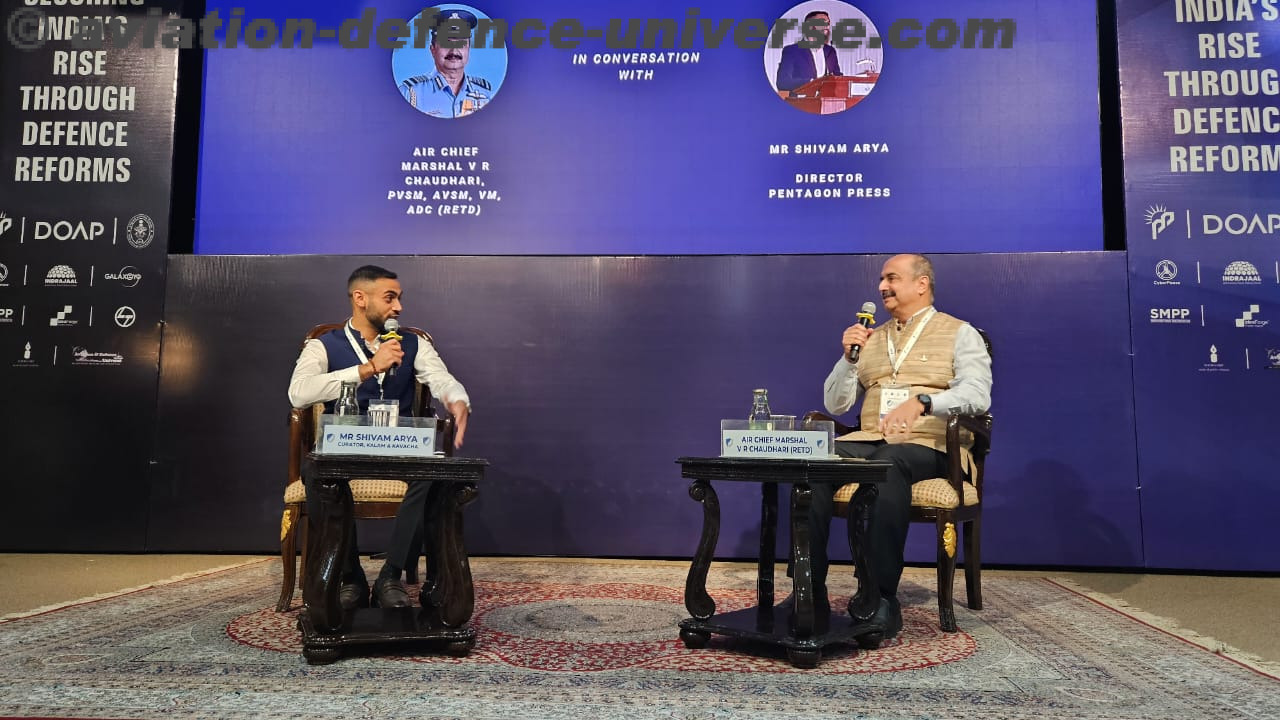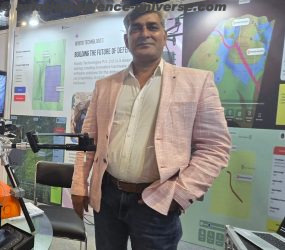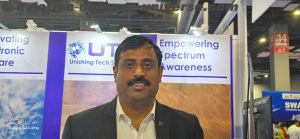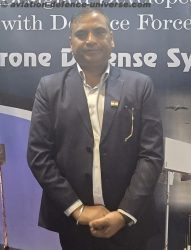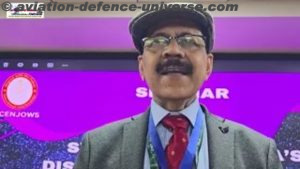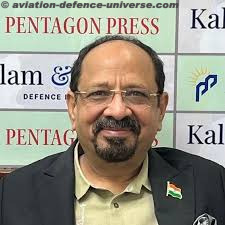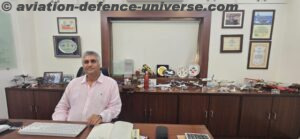- From Theory to Practice : Synergy Quantum is Driving Quantum Cybersecurity
By Sangeeta Saxena
New Delhi. 27 November 2024. At the Naval Show Swavlamban 2024, an array of technologies showcased the future of defence systems. Among these, cybersecurity emerged as a critical domain. Jay Oberai , CEO & Founder of Synergy Quantum discusses their pioneering work in post-quantum encryption and its implications for national security. In an exclusive interview with Aviation & Defence Universe (ADU) he highlights the role of quantum technologies in reshaping cybersecurity strategies and the challenges faced by industry stakeholders in creating awareness and driving adoption.
ADU. You are at the Naval Show your company’s role here?
Jay Oberai. The Naval Show is fascinating, showcasing cutting-edge technologies shaping the future of defence. One of the key areas here is cybersecurity, which is becoming increasingly critical in modern warfare. At Synergy Quantum, we focus on the leading edge of cybersecurity: post-quantum encryption. These are encryption technologies designed to withstand even the power of future quantum computers. Cybersecurity is transforming the way wars are fought, replacing traditional tactics with new-age digital strategies. Post-quantum encryption is essential because it ensures critical infrastructure, such as banking and defence systems, cannot be compromised by quantum computing advancements.
ADU. What is post-quantum encryption, and why is it significant?
Jay Oberai. Post-quantum encryption refers to cryptographic algorithms that cannot be broken, even by quantum computers. This is crucial because if quantum computers achieve the predicted computational power, they could crack the encryption protecting sensitive systems today. Imagine a scenario where a quantum computer disables a nation’s railway, banking, or defence systems—it would be catastrophic. Post-quantum encryption ensures secure communication and data integrity, safeguarding against such quantum threats. Interestingly, it doesn’t require quantum infrastructure to implement. Existing systems can integrate post-quantum encryption in a hybrid model, making it relatively straightforward to deploy.
ADU. What challenges do you face when presenting this technology to stakeholders?
Jay Oberai. The primary challenge is awareness. Many decision-makers believe quantum computers are decades away and dismiss post-quantum encryption as a low-priority issue. There’s also a misconception that adopting post-quantum encryption requires overhauling existing infrastructure or that it is overly complex. However, these algorithms can layer onto current systems, making the transition seamless.When we first demonstrated our technology two years ago, it was met with skepticism. Now, with global initiatives and increasing cyber threats, stakeholders are beginning to understand its importance.
ADU. How is the global landscape evolving in quantum technologies?
Jay Oberai. The United States has invested $10 billion in quantum technologies, with President Biden mandating a roadmap for post-quantum encryption. Europe, the UK, and even India, with its National Quantum Mission, are recognizing the urgency.
China, however, leads the race, reportedly investing $15 billion and deploying quantum systems for cybersecurity. There are even claims that Chinese quantum computers have successfully breached high-security networks. This global shift underscores the need for India to act proactively rather than reactively. A national policy on quantum threats and an implementation roadmap are essential.
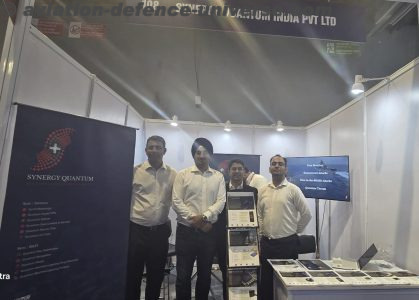 ADU. What solutions does your company offer?
ADU. What solutions does your company offer?
Jay Oberai. We specialize in creating products that use post-quantum encryption algorithms, such as secure messaging and VPN systems. For instance, we’ve developed a messaging app similar to WhatsApp but secured with post-quantum encryption. Even if someone intercepts the data, they cannot decrypt it.
Additionally, we are working on quantum navigation and imaging projects, in collaboration with IIT Delhi and IIT Madras, to enhance national capabilities.
ADU. How is your company collaborating with academia and global stakeholders?
Jay Oberai. Collaboration is at the core of our approach. We are incubated at IIT Delhi and IIT Madras, with professors and students actively contributing to our projects. Our team includes scientists with expertise in big data and encryption, many of whom have worked at institutions like CERN. Globally, we engage with leading companies and institutions to bring the best technologies to India, ensuring our solutions are at par with global standards.
ADU. What is the current status of your engagements with the armed forces?
Jay Oberai. While we’ve conducted several proofs of concept (POCs) with organizations like DRDO and CDAC, adoption has been slow. However, there is growing interest, and we anticipate securing projects within the next 6 to 12 months. The armed forces are now asking for comprehensive solutions, including secure data centres and VPN systems. This shift indicates that quantum cybersecurity is gaining traction as a critical component of national defence.
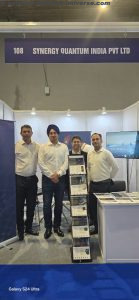 ADU. What steps should the government take to expedite quantum security implementation?
ADU. What steps should the government take to expedite quantum security implementation?
Jay Oberai. First, there needs to be a clear acknowledgment of quantum threats. A simple announcement by the National Security Advisor (NSA) recognizing the risks would create awareness. Second, a national quantum threat panel should be established, comprising experts from ministries, academia, and industry, to draft a roadmap for quantum security. This panel’s recommendations could guide targeted actions across sectors, ensuring a secure transition. Finally, awareness campaigns like a Cybersecurity and Quantum Threat Conference would help educate stakeholders and build momentum for adoption.
Their Quantum Communication Products Suites are fully available for seamless deployment by the customers. These are Quantum Messaging Application, Quantum Data Centers, Quantum Servers, Quantum Secure Chips, Blockchain Security, Quantum Web Browser, Quantum VPN and Quantum 5G Network.Synergy Quantum is Focused on Military Grade Cybersecurity. It stands as the ‘sole entity worldwide’ possessing a technological advantage that encompasses a comprehensive suite of nine products within the realm of Quantum Communications. These product suits are at Technology Readiness Level 9, states Synergy Quantum.
Quantum technologies are no longer a futuristic concept—they are rapidly becoming a reality. Jay Oberai emphasized the urgency of adopting post-quantum encryption to secure national assets against quantum threats. As India accelerates its quantum initiatives, proactive measures, collaboration, and awareness will be pivotal in ensuring a robust cybersecurity framework.
As told to Sangeeta Saxena












